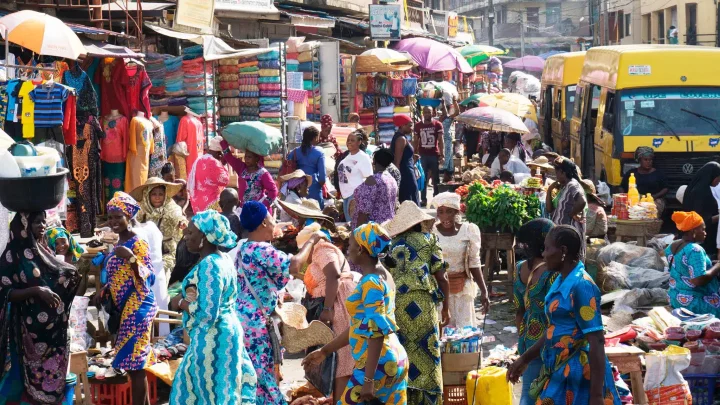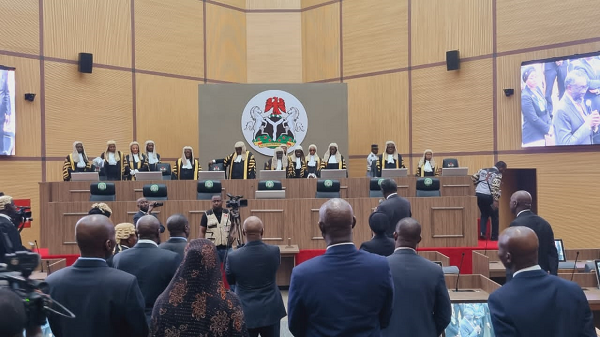BY LUKMAN AHMED
Your Excellency,
It is with deep concern for the state of our nation that I write to address the critical issues of inflation, poverty, and insecurity that have taken a stranglehold on the economy and the lives of millions of Nigerians. As a concerned citizen of this great nation, the burden of these challenges cannot be ignored. The path that Nigeria is currently treading, if allowed to persist, will aggravate the already perilous situation, leading to greater hardships for the people and irreversible damage to the socio-economic fabric of the country.
Nigeria is experiencing an alarming increase in inflation. As of August 2024, inflation rates have risen to 25%, the highest in over a decade. This sustained inflation has had disastrous consequences for households, eroding purchasing power and pushing more Nigerians into poverty. The price of essential commodities, such as food and fuel, has increased dramatically, leading to widespread frustration and anger among the populace. According to data from the National Bureau of Statistics (NBS), more than 133 million Nigerians now live below the poverty line, representing over 63% of the population.
Advertisement
A significant driver of this inflation is the increasing cost of imports, worsened by high import duties. Nigeria remains heavily dependent on imported goods, with the depreciation of the naira amplifying the cost of these imports. The inflationary pressure has also been compounded by rising energy costs, driven by the removal of fuel subsidies without an adequate safety net for the most vulnerable segments of society. As the cost of living spirals out of control, the consequences are dire: hunger, malnutrition, and a growing sense of desperation among millions.
One immediate step that could alleviate the inflationary pressures is reducing customs import duties by at least 50%. Import duties currently range from 5% to as high as 35% on various goods, and these tariffs disproportionately affect the cost of essential commodities. The reduction in customs import duties will make food, medicine, and other essentials more affordable. This reduction will also decrease the production costs for local industries that rely on imported raw materials, enabling them to produce goods at competitive prices.
Moreover, the reduction could stimulate trade, enhance supply chains, and ease the burden on businesses. The Central Bank of Nigeria (CBN) has emphasized the need for non-oil export promotion to diversify revenue streams, and this can only be achieved if local manufacturers are empowered to compete with their international counterparts. Lowering import duties will free up capital for investment in local production, job creation, and infrastructure development, thereby reducing Nigeria’s dependency on imports over the long term.
Advertisement
Nigeria’s youth unemployment rate remains staggering, with over 40% of young people without formal employment, according to the NBS. Empowering local businesses to thrive is crucial for reversing this trend. Small and medium enterprises (SMEs) are the backbone of the Nigerian economy, yet they face numerous obstacles such as limited access to credit, high taxes, and an unpredictable regulatory environment. To promote the growth of SMEs, the government should introduce targeted policies that provide tax breaks and subsidized loans to local manufacturers and entrepreneurs. Strengthening local firms will create employment opportunities, raise living standards, and reduce the dependence on foreign companies.
Furthermore, investing in skill development programs is essential to equip Nigeria’s youth with the capabilities required to fill the jobs created by local industries. A concerted effort to match education and training programs with market needs will build a skilled workforce that can propel Nigeria into the future. The most pressing issue facing Nigeria is the widespread insecurity across the country.
From the ongoing Boko Haram insurgency in the Northeast to the rampant kidnappings and banditry in the Northwest, and the volatile situation in the Niger Delta, insecurity has become a national crisis. According to the Global Terrorism Index, Nigeria ranks among the most affected countries by terrorism, with over 10,000 people killed in the last decade.
Insecurity has displaced millions, destroyed infrastructure, and severely disrupted economic activities, especially in agriculture and trade. The economic impact of insecurity cannot be overstated. Farmers in conflict-affected areas are unable to access their fields, leading to reduced agricultural output and food shortages. This has driven up food prices, contributing further to inflation and worsening poverty. Investors are reluctant to invest in regions plagued by violence, further stifling economic growth and job creation.
Advertisement
For Nigeria to attract real foreign direct investment (FDI), it is imperative that security is restored across the nation. Investors need confidence in the safety of their capital and operations. As it stands, many potential investors are deterred by the unstable security environment. In 2023, Nigeria witnessed a significant decline in FDI, with only $2.1 billion in inflows compared to over $8 billion a decade earlier.
This steep decline is attributed to both insecurity and a lack of structural reforms. The government must prioritize security sector reforms to enhance the capacity of the military and police to combat terrorism, insurgency, and organized crime. Strengthening intelligence gathering, investing in modern surveillance technology, and improving the welfare of security personnel will go a long way in addressing these challenges.
The creation of a coordinated, nationwide security strategy that involves local communities, traditional leaders, and civil society organizations can help build trust and foster peace. Addressing the root causes of insecurity, such as unemployment, poverty, and marginalization, is critical. Regions affected by violence must receive targeted development programs that provide opportunities for education, healthcare, and employment. Rehabilitating displaced persons and reintegrating former combatants into society will help to create a lasting peace that can serve as a foundation for economic growth.
The consequences of allowing the current situation to persist are dire. Continued inflation, poverty, and insecurity will lead to a collapse of social order. As more people fall into poverty, crime rates will inevitably rise, and the government may lose its grip on law and order. Social unrest will become more frequent, and the potential for political instability will increase.
Advertisement
The deteriorating economic conditions could also push more Nigerians into migrating abroad, leading to a brain drain that will further cripple the nation’s potential for development. Inaction on inflation and insecurity also risks tarnishing Nigeria’s reputation on the global stage. The country’s ambition to become a major player in the African Continental Free Trade Area will be undermined if it cannot provide a stable and secure environment for business. Foreign investors will continue to look elsewhere, depriving Nigeria of the capital and technology needed to drive its industrialization and modernization efforts.
The time for urgent action is now. Nigeria cannot afford to allow inflation, poverty, and insecurity to continue unchecked. Reducing customs duties by at least 50% is a critical first step in bringing down the cost of goods, empowering local businesses, and creating jobs. At the same time, a comprehensive strategy to tackle insecurity, improve infrastructure, and attract foreign investment must be implemented.
Advertisement
Mr. President, the people of Nigeria are looking to you for leadership during these challenging times. Bold decisions are required to stabilise the economy, restore security, and create a brighter future for all Nigerians. If these actions are taken swiftly and decisively, Nigeria can overcome its current challenges and emerge as a stronger, more prosperous nation.
Yours sincerely,
Advertisement
Dr. Lukman Ahmed Omeiza, PhD (Former Chairman, Nigeria Community in Ukraine)
Ahmed is a postdoctoral research scholar at L.N Gumilyov Eurasian National University. He can be contacted via [email protected]
Advertisement
Views expressed by contributors are strictly personal and not of TheCable.
Add a comment






